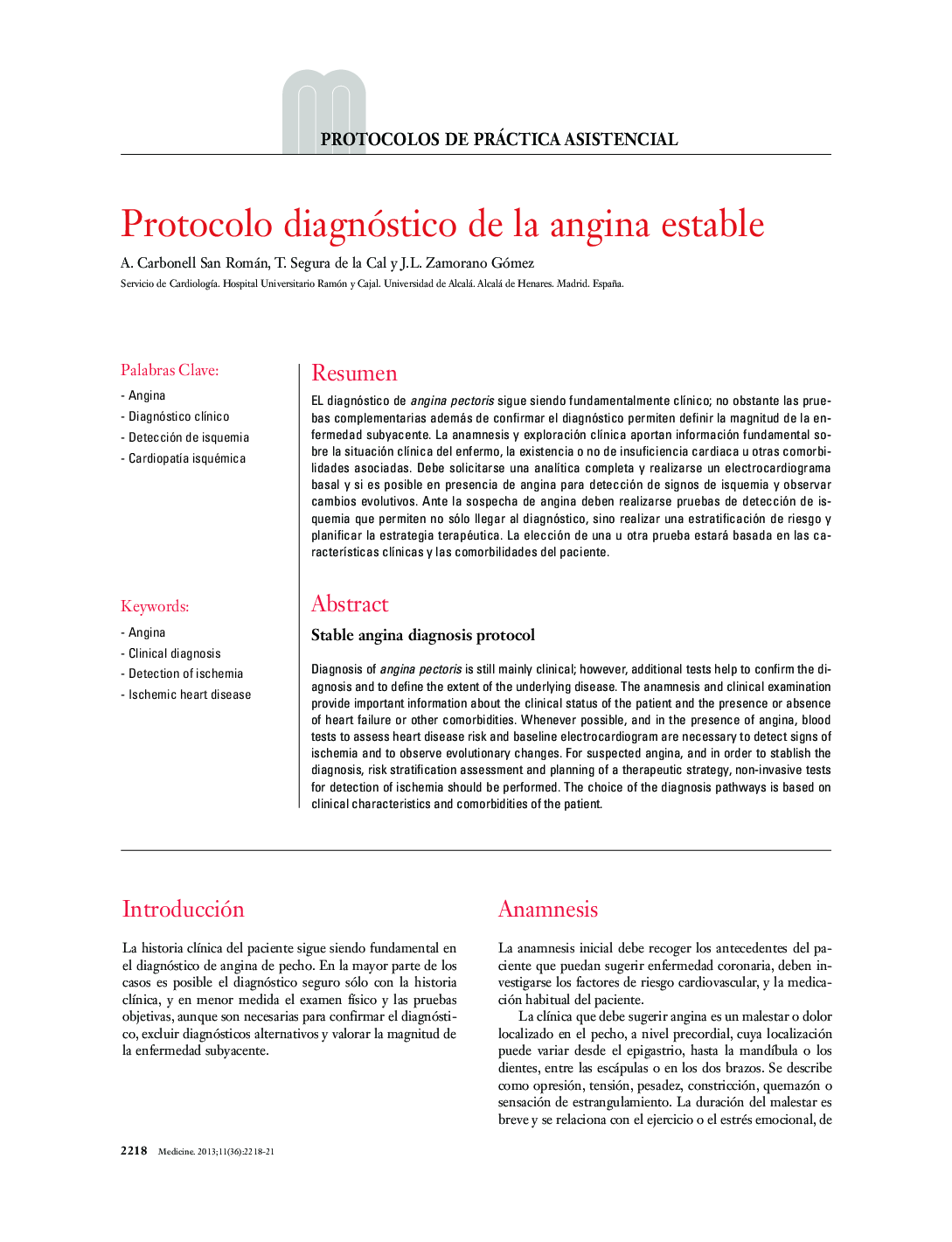| Article ID | Journal | Published Year | Pages | File Type |
|---|---|---|---|---|
| 3806892 | Medicine - Programa de Formación Médica Continuada Acreditado | 2013 | 4 Pages |
Abstract
Diagnosis of angina pectoris is still mainly clinical; however, additional tests help to confirm the diagnosis and to define the extent of the underlying disease. The anamnesis and clinical examination provide important information about the clinical status of the patient and the presence or absence of heart failure or other comorbidities. Whenever possible, and in the presence of angina, blood tests to assess heart disease risk and baseline electrocardiogram are necessary to detect signs of ischemia and to observe evolutionary changes. For suspected angina, and in order to stablish the diagnosis, risk stratification assessment and planning of a therapeutic strategy, non-invasive tests for detection of ischemia should be performed. The choice of the diagnosis pathways is based on clinical characteristics and comorbidities of the patient.
Related Topics
Health Sciences
Medicine and Dentistry
Medicine and Dentistry (General)
Authors
A. Carbonell San Román, T. Segura de la Cal, J.L. Zamorano Gómez,
